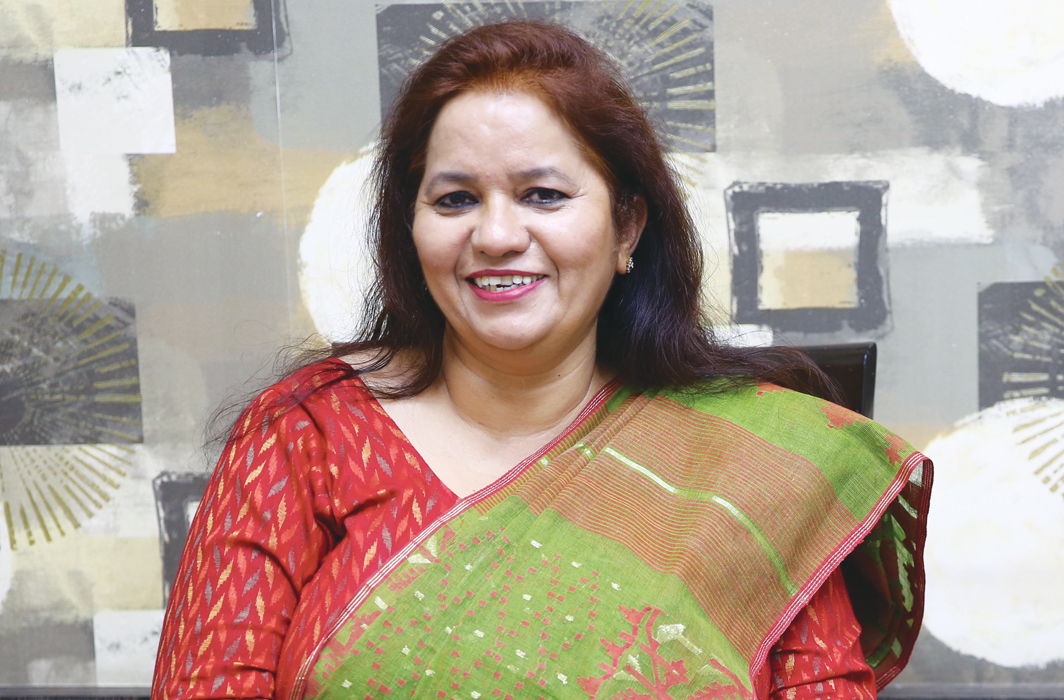Covid-19 turned the world upside down and affected everyone, especially the migrants. Even though they trudged home in search of succour after the sudden lockdown, they will come back to earn and improve their status again in the cities, JYOTIKA KALRA, a member of the National Human Rights Commission, told INDIA LEGAL. Unlocking is the way forward to restart the economy, said this former Supreme Court Advocate-on-Record and added that the pandemic had shown that it is the people who run the country not the government. Kalra has also served on the panel of the Supreme Court Legal Services Committee. Excerpts:
As a human rights activist, what are your views about the plight of migrants and others who have been thrown into uncertainty?
Covid-19 has brought human rights to the centrestage. It has affected a cross section of people, be it migrants, daily wage and factory workers, drivers, maids, shop assistants and so on. All of them now want to resume work and earn money and stop depending on the food being served free. This is not possible until the members of society start their contribution to the economic activity. Each one of us who were spearheading the economic activities will have to restart at the earliest.
Is the government to be blamed for imposing a sudden lockdown on March 24?
The centre must have anticipated that the lockdown would affect the livelihood of the unorganised sector totally and the organised sector substantially. The corona cases were rising, the pandemic was to be controlled, resources, especially the medical infrastructure were limited, time was needed to prepare for the same. On one hand mass casualties due to an unforeseen pandemic and on the other hand lockdown of economic activities. Lockdown was chosen in the interest of the larger public.
It was a massive task, lot of efforts were required including planning by involving cross sections of society. Better planning could have reduced economic impact. Some of the activities like in situ construction, where the labour stays at the construction sites, and factories where the labour could stay inside the factories and work, should not have been stopped. Such activities could have checked migration to a large extent because most of the migrants work in construction activities. More so because during lockdown also, the labour was staying at the sites only but was not allowed to work. The economy has suffered, companies are facing financial crisis along with health issues. After several lockdowns, the country is now ready with medical facilities and our systems and other infrastructure are well-equipped to face the after-effects of Covid-19.
What is your opinion about migrants getting a raw deal while travelling by the Shramik Specials?
The trains started from May 1, it was late, trains should have started earlier. Trains were for and from limited destinations, for booking a ticket, a bar code had to be downloaded on a smartphone. Labourers faced lot of difficulty in booking tickets, even after booking, the trains were getting cancelled. Also, many could not book their tickets. As a result, many migrants decided to take other modes of travel or simply walk down. Hassle-free train booking could have certainly eased the situation.
With economic activities picking up gradually, will the migrants come back to cities?
Of course, they will. They were on the road due to the lockdown. But now as it eases and economic activities, including construction, pick up, they will come back. On an average, a husband and wife working in any construction site, earn around Rs 20,000-25,000 monthly with free stay at the site and no expense on transportation. Children are also being taken care of along with the work. These workers were enterprising, they moved out of their villages for a better future. There is no reason for them to stay away from work, their mindset will motivate them to join work. Already, many migrants have shelved their plans to go back. Unlocking is the way forward to restart the economy and provide employment and livelihood to people. Along with economic activities we must take all precautions, wear masks, maintain social distancing and wash hands, etc.
But the cases have risen exponentially and are going up each day.
We need to come out of the fear psychosis. Despite Covid-19 and a lakh deaths, people in the US have come out in large numbers protesting the death of George Floyd, a black American, at the hands of a police officer. The disease is not fatal, but it has to be fought head-on. Eighty percent of those who contracted Covid-19 have no symptoms. Ninety percent of those who died had co-morbidities.
So what is the future?
Dr Ravi, head of neurovirology at NIMHANS, said by December, 50 percent of the people will be infected by Covid-19 and 90 percent out of these cases will not even know that they contracted the virus. Learn to live with the virus.
What lessons can we glean from this pandemic?
It has shown that it is the people who run the country and not the governments. Governments are spending and doing all their normal activities but because people are not fully participating in activities, a weak economic condition is quite visible.


